The great persuader
The shock was total. Jaws had dropped, faces were stunned. ‘How could this be?’ was the thought on everybody’s minds. The seasoned media professionals on the Age newsroom floor were gutted. He was a joke of a candidate, no one thought he could win, he had no real qualifications, a silly dolly bird wife, the other candidate was much more acceptable – yet the mighty USA, mightiest country in the world, had just elected him president. What??!!
The year was 1980, the candidate was Ronald Reagan, and Melbourne’s Fairfax newsroom had just been sucker punched by the election of a candidate they had been told had no chance of winning. As a young reporter, I wondered how that could happen, that everyone could get it so wrong. Having now spent a lifetime observing media bias, and the echo chamber effect that social media magnifies, I wonder no longer.
Two parallel universes have been operating in the USA. In one, populated by NBC, CNN, the New York Times, Huffington Post, with Facebook, Twitter, and Google as gatekeepers and polite society onside, the talk was all about Donald Trump’s unacceptable behaviour, his disgraceful approach to women, the nasty race-baiting rhetoric he was using to divide the nation, his fearful, backwards-looking appeal. In this world, the massive crowds at Trump rallies were ignored, and it was accepted as fact that the Russians were behind the Wikileaks emails, Julian Assange’s denial notwithstanding.
In the other universe, populated with far fewer media bodies such as Fox News, Breitbart, the Wall Street Journal, Wikileaks, various conservative bodies and commentators, and the Twitter-verse, the issues were ‘Crooked’ Hillary’s scandals, the Clinton Foundation where access and favours were provided to donors, the Wikileaks dumps, media collusion, and the economic stagnation of the nation. Less was made of the Trump tape, the strangely coincidental sexual accusations from women, and more of Project Veritas’ revelation of Democratic dirty tricks at Trump rallies.
And these worlds rarely mixed. In much polite Democrat-leaning New York society the only acceptable response to Donald Trump was condemnation and derision. One grew to know the Trump supporters by their silence when the topic of the election was brought up, their slowness to instantly damn the mogul. At a glamorous cocktail party in an exclusive women’s club last week, a casual friend asked me what I thought of the election, and then, before I had had a chance to reply, whispered earnestly: ‘You can tell me, I promise I won’t tell anyone.’
It was not just that different issues were in play, it was that one side of the argument had been bullied into silence. Trump’s vulgarity meant that nothing about his policies or issues could be any good. ‘Deplorables’ were not socially acceptable, and nor were their issues. Abuse, social shunning and possible career consequences awaited anyone who spoke out for Trump. It’s no surprise that among Hollywood actors, it was mostly the older, established stars with nothing to lose, such as Jon Voight and Clint Eastwood, who came out for Trump.
To be sure, Donald Trump had at times made it too easy for his enemies. He is obviously thin-skinned, egotistical, occasionally boorish and vulgar, with a bull-in-a-china shop approach to social niceties. What you see is what you get. His daughter Ivanka nicely describes him as ‘an equal opportunity offender’. But we don’t get to vote for saints, and while Donald’s words offended some, Hillary’s actions offended others more deeply. And he electrified what was shaping up as an epically boring presidential race (Bush vs Clinton, yawn, used to be the received wisdom prior to the Primaries) by actually raising gut issues that people cared about – loss of jobs, globalisation, government corruption, uncontrolled immigration, growing lawlessness, Obamacare, the 22 veteran suicides a day – and couching them in non-Washington jargon that people could understand. Radio hosts reported, before and even on the day of the election, calls from people who hadn’t voted for decades and how did they do it, please?
What is perhaps less well known, depending on your choice of media echo chamber, are Trump’s charm and salesmanship skills. One of the Wikileaks emails warns DNC chief John Podesta against underestimating Trump, saying that his marketing skills were ‘as good as Steve Jobs’.’ You only have to sit through one of Trump’s rallies to see how skillfully he marshals his rhetoric and argument, and commands the stage. Cartoonist Scott Adams, a breakout commentator in this election, provided an interesting lens through which Trump’s over-the-top behaviour made sense. He calls Trump a Master Persuader, and explains that what ‘word-thinkers’ see as grotesque policy positions (ban all Muslims, build a wall) were in fact classic persuasion techniques making a graphic point or establishing an emotional connection. Having demonstrated which side he was on (‘yours’), he could then walk it back on the issues to a moderate, acceptable position. Thus banning all Muslims has now become ‘extreme vetting’, and deporting 11 million illegals is now deporting criminal illegals.
Adams would see Trump, the day after his election, continuing his Master Persuader behaviour by graciously praising Hillary, refusing to gloat, adopting a modest mien, vowing to govern for all. The time for bluster and brutal campaign aggression is over, a new Trump is called for and therefore will emerge.
And on the streets of New York, the voices for Hillary are quieter, and the silenced are finally finding their voices in the TV vox pops, saying they supported Trump all along.
The post New York notes appeared first on The Spectator.
Got something to add? Join the discussion and comment below.
Get 10 issues for just $10
Subscribe to The Spectator Australia today for the next 10 magazine issues, plus full online access, for just $10.
You might disagree with half of it, but you’ll enjoy reading all of it. Try your first month for free, then just $2 a week for the remainder of your first year.

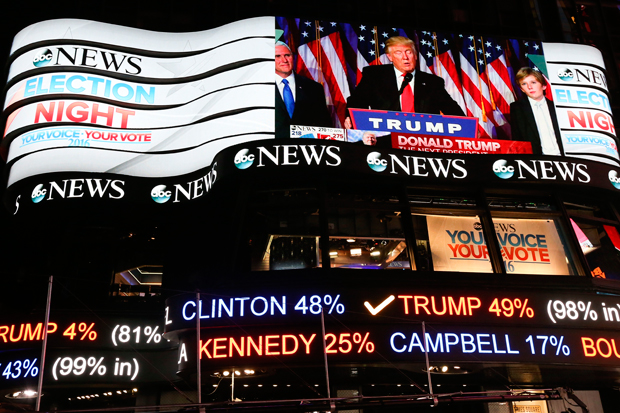
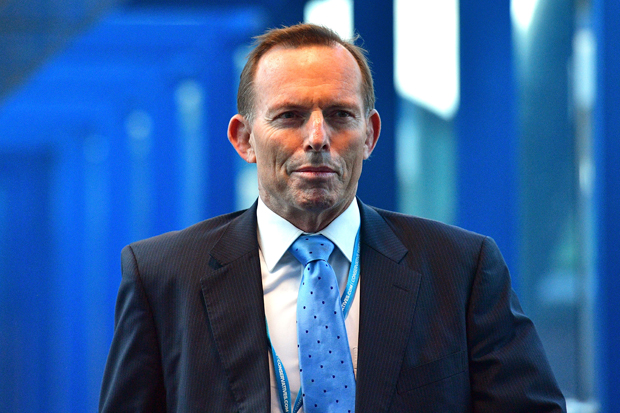
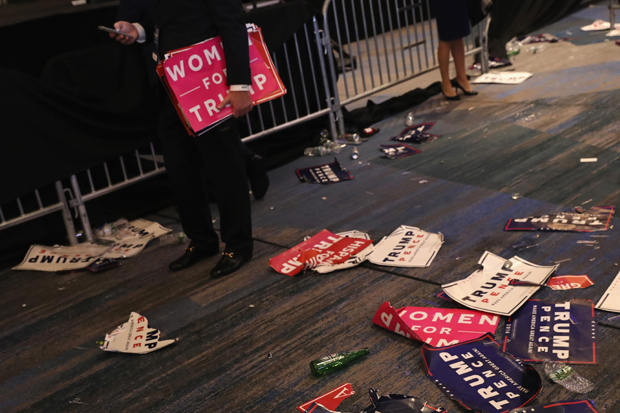
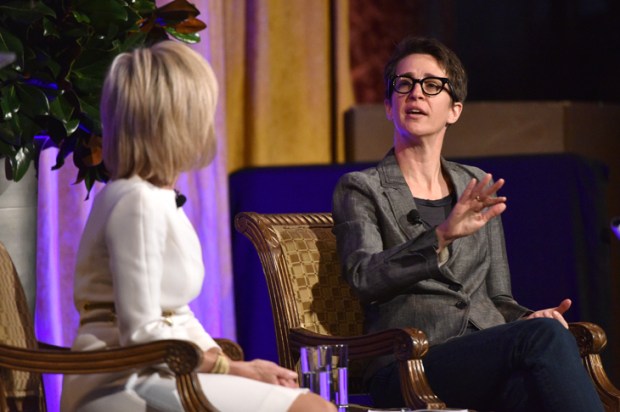
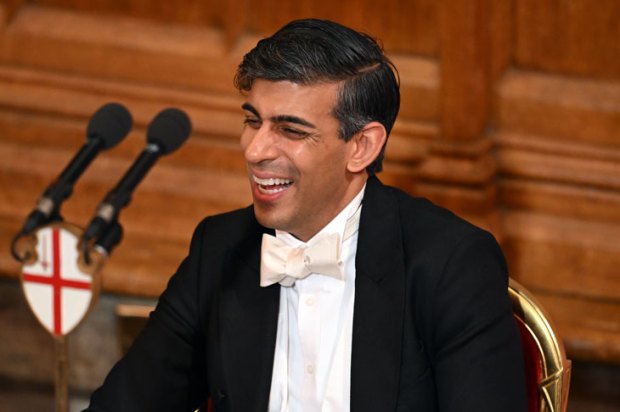








Comments
Don't miss out
Join the conversation with other Spectator Australia readers. Subscribe to leave a comment.
SUBSCRIBEAlready a subscriber? Log in